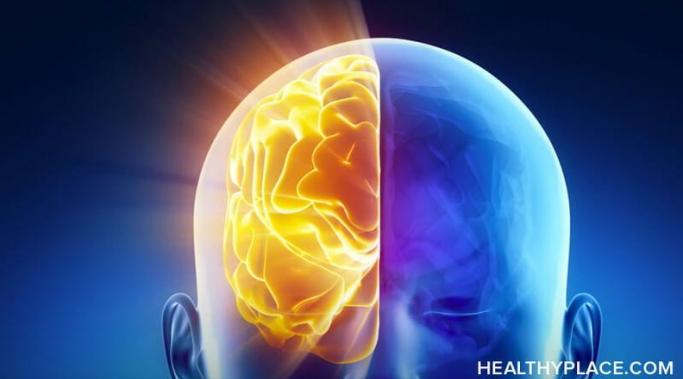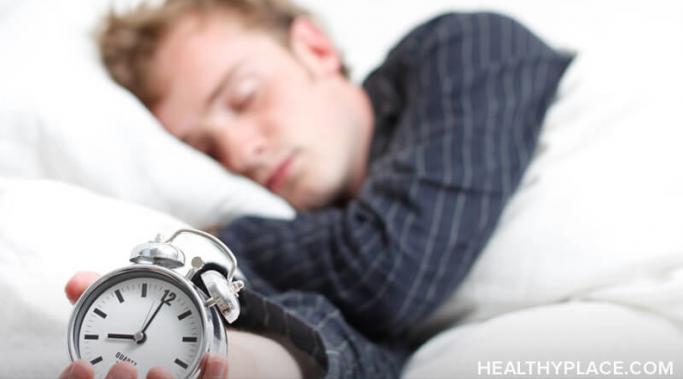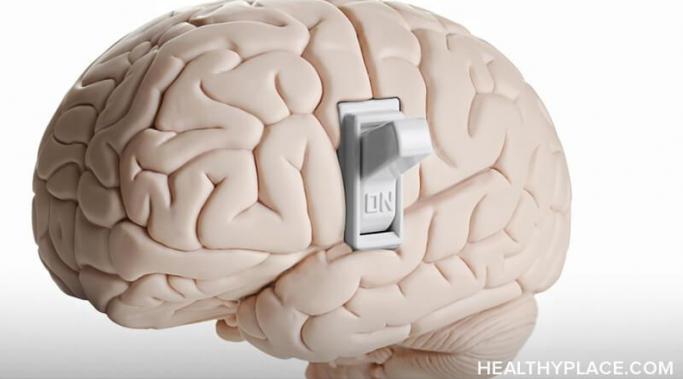OK, so I admit it, I haven’t spent a whole lot of time thinking about gender’s relationship to depression. I know the basic pieces of information: more women are diagnosed with depression than men, and more women attempt suicide while more men actually commit suicide.
But there is a lot to understand beyond that. Did you know that men are up to 15 times more likely to commit suicide than women?
Depression – Breaking Bipolar
I have been through very long, dark nights of the psyche. I have been in pain I didn’t think I could survive. I’ve been in pain I almost didn’t survive. I have done things I never wanted to do. I have done things I never thought I would do. I have been to places most people wouldn’t even come up with in their nightmares.
And when I’m not there, I’m grateful. No matter how much I might think things suck, I’m not sitting in that particular pile of blood and muck. No matter how I feel today I can honestly say it can get worse. Every time I think I’ve hit bottom I’ve found there is actually more bottom beyond that. It is unfortunate but true, there is no maximum to pain.
And any time I even think about changing meds I’m worried I will go there again.
What I know about the brain is a fragment of what is known about the brain. What we know about the brain is a fragment of what there is to know about the brain. That being said, what we do know is worth taking a look at.
In the 1960’s scientists discovered that increasing levels of dopamine, norepinephrine, and serotonin in the brain reduced depressive symptoms. This suggested that a depressed brain didn’t have enough of these chemicals and this is where the chemical imbalance theory came from. It was quite reasonable and made perfect sense, but we’ve learned a lot since the 1960s.
I have been through more bipolar treatments than I care to recall; probably everything you’ve heard of plus a bunch of bipolar treatments you haven’t. And yes, obviously, I have failed the vast majority of these bipolar treatments. And while not getting better is certainly nasty enough, it always feels like it’s my fault that the treatment didn’t work.
Over the years I’ve been treated for bipolar, I’ve come to the conclusion that when you sleep and when you wake (your circadian rhythm) is key in stability and wellness. If you do not wake up at the same time every morning and go to bed at the same time every night you are in for a world of hurt.
This is mostly my opinion though. There is some research on the matter, but nothing as conclusive as I feel about it. Or at least nothing that I knew about until I heard of the Chicago Psychiatry Associates’ Program in Psychiatric Chronotherapy. (Sounds complicated, but it isn’t. Stay with me.)
I get all manner of comments here and many of them scrape against my bones. Because I know these people. Because I know their brains. Because I am these people.
Sometimes people think because I write or advocate or win awards I am not them, but it is precisely because I am them that I can do these things. It is precisely because I feel their desperation that I can truly write about it. One does write what they know, after all.
Vagus nerve stimulation (VNS) is exactly what it sounds like--stimulation of the vagus nerve in your neck. Stimulation takes place by using electrical impulses (a nice way of saying shocks). When the vagus nerve is stimulated, that stimulation is then carried to various other parts of the nervous system and this is what is thought to be its method of action. This stimulation may alter neurotransmitters like norepinephrine and GABA.
OK, I know, that’s complicated. In short, they zap a nerve in your neck and that’s carried to the brain where it does stuff.
I know that as a semi-public person with bipolar disorder I am supposed to beam hope. I am supposed to remind people of it, write about it, speak about it, and give it to everyone wrapped in a shiny happy wrapper.
I don’t do this.
There is, without doubt, hope to be had, out there in the bipolar treatment world, but that doesn’t mean I particularly feel too strongly about it personally.
The internet is a fabulous place where everyone gets to share their story for all to see. The internet is a horrible place where everyone gets to share their story for all to see.
It is the best of times; it is the worst of times, and nowhere is this more evident than in the deluge of mental health information.
Kate White, our anxiety blogger here at HealthyPlace asked the question: what does a mental illness feel like? Well, that's a big question. I've been writing for years to answer it. In today's bipolar video though, I expose one facet of crazy that really ruins my day.





